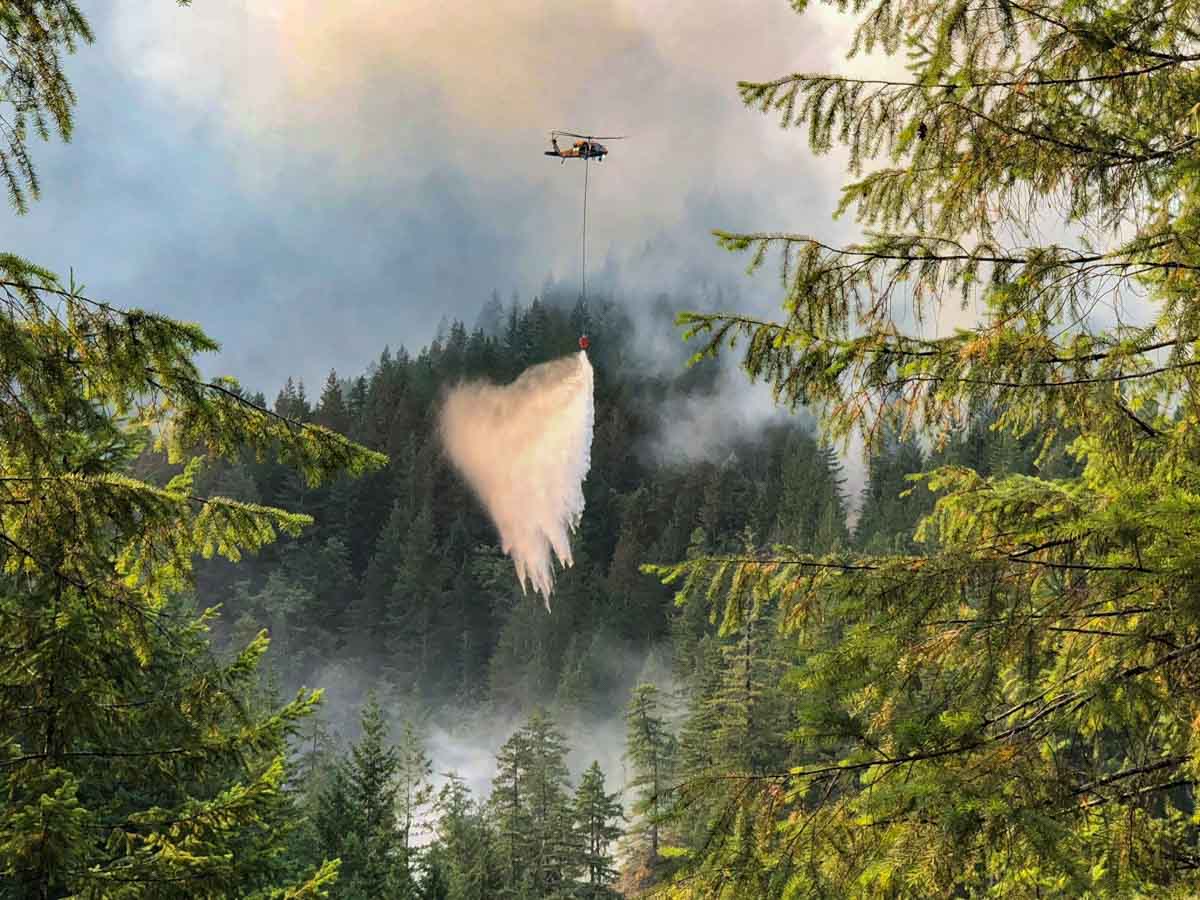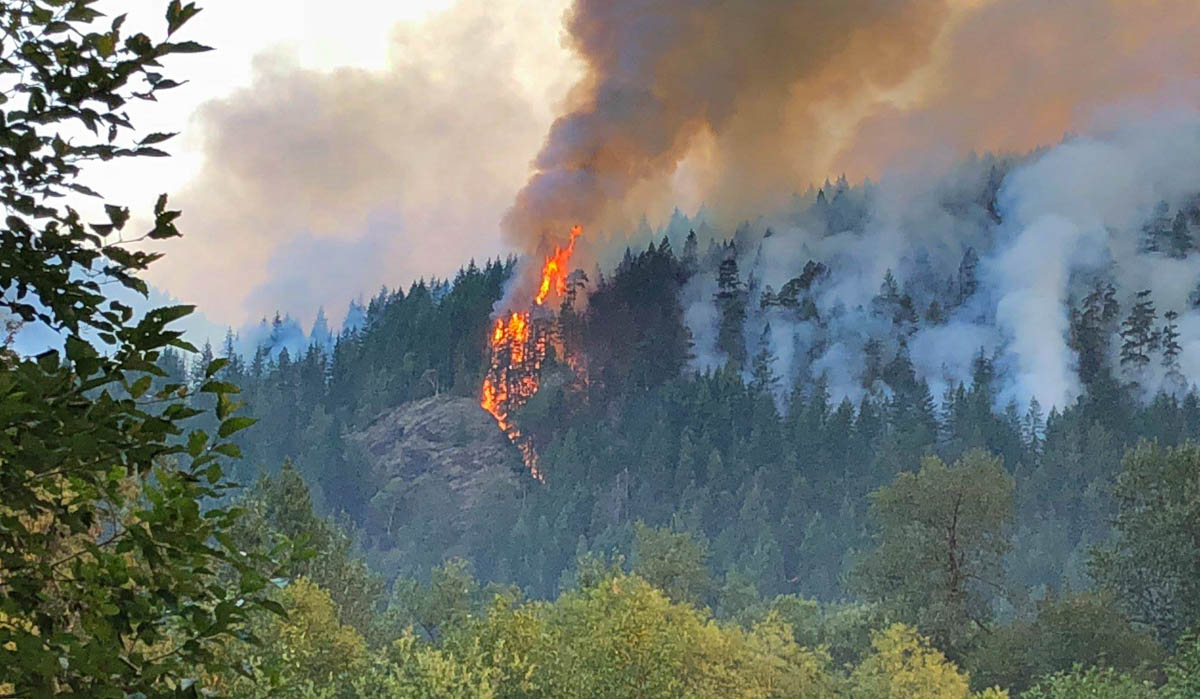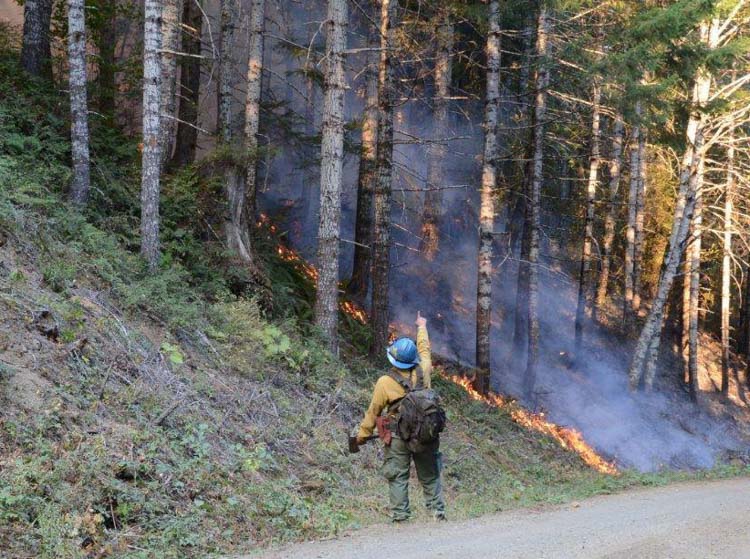
The lead defendant in a scheme to unlawfully harvest maple trees from the Olympic National Forest that resulted in the 3,300-acre Maple Fire in 2018 was sentenced November 8 to 20 months in prison. Justin Andrew Wilke, 39, was convicted in July 2021 of conspiracy, theft of public property, depredation of public property, trafficking in unlawfully harvested timber, and attempting to traffic in unlawfully harvested timber.
Maple trees are so valuable and prized by woodworkers, especially those who manufacture musical instruments, that it is a violation of the law in Washington to transport the wood without a state-issued specialized forest products permit. Armed with a permit that authorized the harvesting of maples from private land, Justin Andrew Wilke and Shawn Edward (Thor) Williams and others camped for several days in the Olympic National Forest scouting for big leaf maple trees with the highly desired figured wood pattern. They identified trees containing figuring by “checking” the trees, that is, using an axe to peel back the bark to expose the pattern of the wood, sometimes doing it at night to avoid detection.
When they found a tree they liked they would fell it with a chain saw, buck it up, and transport the wood to a mill in Tumwater, Washington, presenting the permit and saying it had been harvested with permission from private property. According to the federal grand jury indictment, Wilke and/or Williams made more than 20 trips to the mill between April and August of 2018, collecting more than $13,000 by selling illegally harvested National Forest timber.
This prosecution was the first use of tree DNA evidence in a federal criminal trial. At the trial, a Research Geneticist for the USDA Forest Service testified that the wood Wilke sold was a genetic match to the remains of three poached maple trees investigators had discovered in the Elk Lake area. The DNA analysis was so precise that it found the probability of the match being coincidental was approximately one in one undecillion (one followed by 36 zeroes). Based on this evidence, the jury concluded that the wood Wilke sold the mill had been stolen. The DNA evidence also concluded that Wilke had unlawfully harvested and sold wood from seven additional maple trees – but the precise locations of those trees have not been determined.

On August 3, 2018, Wilke led a group of two other individuals in deciding to cut a maple tree that contained a wasp’s nest near the base of the tree. To remove the nest, the group sprayed insecticide and likely gasoline on the nest and then lit the nest on fire. The group failed to extinguish the fire, which developed into the Maple Fire which cost approximately $4.2 million to suppress. The other two members of the poaching group testified at trial that Wilke was standing next to the nest when it was lit on fire, and therefore appeared to have set the fire. However, because the fire was set at night, they were not able to see his exact actions, and testified that they did not know exactly how the fire started. The jury did not convict Wilke of the two federal counts related to the forest fire: setting timber afire and using fire in furtherance of a felony. The jury did convict Wilke of attempting to cut down the tree where the fire was set on the night of the fire.
Prosecutors recommended a 36-month sentence, noting that Wilke led the three-person tree-poaching ring that indisputably started the fire, and that Wilke likely set the fire himself based on the testimony at trial. At sentencing, Judge Benjamin H. Settle concluded that the evidence was clear and convincing that Wilke was present when the fire was set, that a member of Wilke’s poaching crew set the fire, and that Wilke more likely than not personally set or directed one of his crew to set the fire. But Judge Settle noted that Wilke had made positive strides while on pretrial release, and that prison time is more difficult during the COVID pandemic. Judge Settle therefore imposed the 20-month sentence.
Wilke was also ordered to forfeit the proceeds of his illegal poaching. He will be required to pay restitution to the United States Forest Service. The exact amount will be determined at a later hearing.

Thanks and a tip of the hat go out to Greg.

I wish people realized that crimes against flora and fauna are crimes laid at the feet of the next generation. If we do not start taking this with deadly seriousness, we may have nothing of value left to mourn.
I wish the took crimes against fauna as seriously as the do flora.
Thank you for this little known piece of info. Nice to read up lifting stories like this.
Excellent article Bill. Thank you for covering this.
This is a good write up, Bill, on high grade maple timber theft and possible wildfire starts from the perpetrators. Read this article from High Country News in 2017 for a good description of what USFS LEOs have to go through to catch these heathens.
https://www.hcn.org/issues/49.5/busting-the-tree-ring